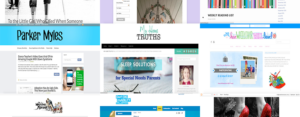
The Benefits of Employing People With a Disability
Would you refuse to even consider hiring 20% of candidates who are applying for a job? Find out how employing people with a disability can benefit your business.
One in five Australians are living with a disability, but until now some employers have been reluctant to hire people with disability. All of that is changing, with many workplaces shifting to more inclusive models of employment. Studies have shown that it’s good business to hire people with disability, and many employers are jumping on board.
Why are employers reluctant to hire people with disability?
There are a number of reasons why some employers are reluctant to hire people who have disabilities, and one of the biggest obstacles is lingering negative stereotypes and narrow-minded assumptions about the ability of people with disability to perform their job. These attitudes are harmful in countless ways: they do a disservice to people with disability, ensuring that a further lack of representation is the end result of such prejudices. In many cases disabled candidates are simply never given the opportunity to prove themselves.
Myths about disabled workers that create obstacles to employment
These attitudes often materialise into a series of myths about disabled employees, and these incorrect assumptions make it much harder for candidates with disability to navigate the recruitment process than their able-bodied equivalents.
Here are some common myths about disabled workers:
- The perception that disabled workers have expensive needs
- The fear that disabled employees will take more sick leave
- Concerns about worker’s compensation and OH&S regulations
- The assumption that disabled workers will not have the right social “fit”
- The belief that disabled workers will take a lot of time to manage
Contrary to belief, Australian and overseas studies have shown that workers with a disability are no more likely to injure themselves on the job – nor do they have more scheduled absences. In fact, disabled workers are less prone to absenteeism and tend to stay longer in their roles, reducing staff turnover.
What are the benefits of employing people with a disability?
There are a number of social and economic benefits that come from hiring people with disabilities: these benefits are enjoyed by both the individual and the workplace itself.
Benefits for employers:
1. Higher retention rates and employee loyalty: disabled workers show a high amount of loyalty to employers, with longer tenure and higher retention rates.
2. Less absenteeism and better attendance: people with disabilities generally take fewer days off and they also take less sick leave.
3. Fewer occupational health and safety incidents: worker’s compensation costs for people with disability are as low as 4% of those for other employees.
4. Building a team that better reflects the community: workplaces benefit by hiring people with a diverse range of backgrounds, skills and life experiences.
Benefits for people with disability:
1. Increased financial independence: having a regular income facilitates higher standards of living, helping them to attain financial independence.
2. A sense of pride and self-worth: hiring disabled employees sends the message that all types of ability are valued by the community.
3. Enhanced social connections: people with disability build strong relationships with their customers, managers and fellow colleagues.
4. Smashing social stigmas and stereotypes: higher representation of people with disability “normalises” their participation and counteracts negative stereotypes.
The upshot of changing attitudes and a shift to inclusivity means that we are now seeing an entirely new range of skills, talents and abilities being brought to the workplace. And that can only be a good thing for the economy – and our society.










